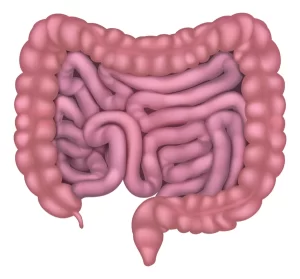Gut health is a critical aspect of overall well-being that has gained increasing attention in recent years.


Understanding and maintaining a healthy gut can have profound effects on your digestive system, immune function, and even mental health.

Join our Telegram Channel for Updates
Here’s what you need to know about gut health and how to keep it in top shape.
What is Gut Health?
Gut health refers to the balance and functionality of the trillions of microorganisms living in your digestive tract, collectively known as the gut microbiome. These microorganisms play a crucial role in various bodily functions, including digestion, immune response, and even the production of neurotransmitters that affect your mood and mental health.
A healthy gut is characterized by a diverse and balanced microbiome, minimal digestive discomfort, and the absence of significant gastrointestinal conditions such as Crohn’s disease, ulcerative colitis, or irritable bowel syndrome (IBS). Maintaining this balance is essential for preventing chronic diseases and promoting overall well-being.
Why Do Gut Health Matter?
The state of your gut microbiome has far-reaching implications. Imbalances in gut bacteria, known as dysbiosis, have been linked to a range of health issues, including inflammatory bowel disease (IBD), type 2 diabetes, eczema, rheumatoid arthritis, and even mental health disorders like depression and anxiety.
Dysbiosis can also lead to conditions like “leaky gut syndrome,” where the intestinal barrier becomes compromised, allowing harmful substances to enter the bloodstream and trigger inflammation.
Factors Affecting Gut Health
Several factors can influence the balance of your gut microbiome:
Diet: The foods you eat directly affect the composition of your gut bacteria. Diets high in fiber, fruits, vegetables, and fermented foods support a healthy microbiome, while diets high in processed foods and sugars can lead to dysbiosis.
Antibiotics: While antibiotics are essential for treating bacterial infections, they can also disrupt the balance of gut bacteria, leading to conditions like Clostridium difficile (C. diff) infections. It’s crucial to use antibiotics only when necessary and under medical supervision.
Lifestyle: Regular exercise, good sleep hygiene, and stress management are important for maintaining gut health. Chronic stress and poor sleep can negatively impact your gut bacteria and contribute to digestive issues.
Probiotics and Prebiotics: Probiotics are beneficial bacteria that can help restore balance in your gut, especially after antibiotic use. Prebiotics are indigestible fibers that feed these good bacteria. Together, they can support a healthy microbiome.
Signs of an Unhealthy Gut
Symptoms of an unhealthy gut can vary but often include bloating, gas, diarrhea, constipation, and unexplained abdominal pain. Changes in bowel habits, such as having fewer or more frequent bowel movements than usual, can also indicate gut issues. Persistent symptoms should be discussed with a healthcare provider, as they may warrant further investigation, such as stool tests or endoscopies, to rule out more serious conditions.
Tips for Maintaining a Healthy Gut
To support your gut health, consider the following techniques:
- Eat a Diverse Diet: Include a variety of fruits, vegetables, whole grains, and fermented foods like yogurt, kefir, and sauerkraut in your diet to promote a diverse microbiome.
- Limit Processed Foods and Sugars: Reduce the intake of highly processed foods and sugars, which can feed harmful bacteria and contribute to dysbiosis.
- Exercise Regularly: Aim for at least 150 minutes of moderate exercise per week to support gut health.
- Manage Stress: Practice stress-reduction techniques like meditation, yoga, or deep breathing exercises to protect your gut from the negative effects of chronic stress.
- Be Cautious with Antibiotics: Use antibiotics only when prescribed and necessary. Consider taking probiotics during and after antibiotic treatment to help restore gut balance.
Gut health foods?
1. Fermented Foods
- Yogurt: Rich in probiotics, yogurt contains live bacteria that can help maintain the balance of good bacteria in your gut.
2. High-Fiber Foods
- Whole Grains: Foods like oats, quinoa, and barley are high in fiber, which promotes healthy bowel movements and feeds beneficial gut bacteria.
- Legumes: Beans, lentils, and chickpeas are great sources of fiber and help maintain gut health by feeding beneficial bacteria.
- Fruits and Vegetables: Apples, bananas, berries, broccoli, and artichokes are rich in fiber and contain prebiotics that support healthy gut bacteria.
3. Prebiotic Foods
- Garlic: Contains inulin, a type of prebiotic fiber that feeds good gut bacteria.
- Onions: Another excellent source of inulin, onions also provide antibacterial properties that benefit gut health.
- Leeks: Similar to garlic and onions, leeks contain inulin and help support gut health.
- Asparagus: High in prebiotics and fiber, asparagus can help promote a healthy gut microbiome.
4. Polyphenol-Rich Foods
- Berries: Blueberries, strawberries, and raspberries are high in polyphenols, which act as antioxidants and support gut health.
- Green Tea: Rich in polyphenols, green tea has been shown to promote the growth of good gut bacteria.
- Red Wine: In moderation, red wine provides polyphenols that can positively impact gut health.
5. Nuts and Seeds
- Almonds: High in fiber, healthy fats, and polyphenols, almonds can support the growth of beneficial gut bacteria.
- Walnuts: Another great source of fiber and omega-3 fatty acids, walnuts help maintain a healthy gut microbiome.
6. Bone Broth
- Bone broth is rich in gelatin and amino acids like glutamine, which help repair the gut lining and support overall digestive health.
By paying attention to your diet, lifestyle, and stress levels, you can maintain a healthy gut microbiome that supports not only your digestive system but also your immune function and mental health.
If you experience persistent gut-related symptoms, it’s important to seek medical advice to address any underlying issues and keep your gut—and your body—healthy.













